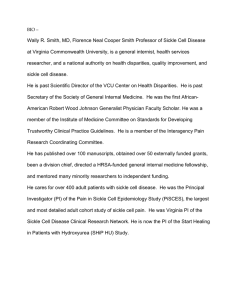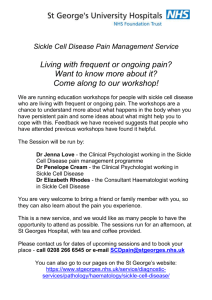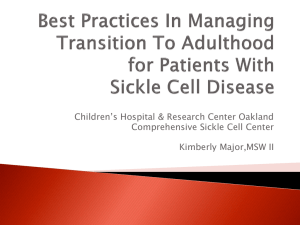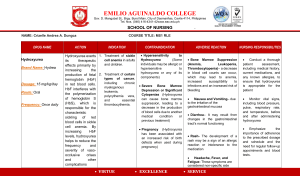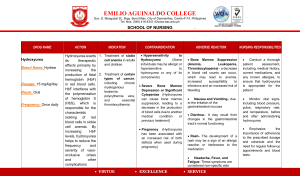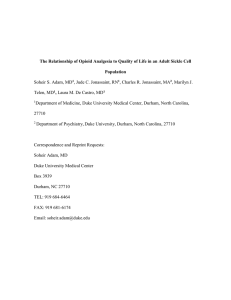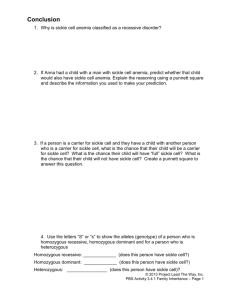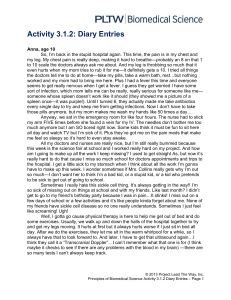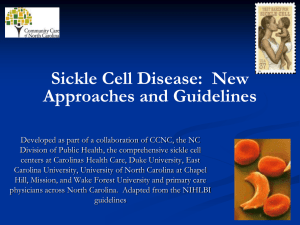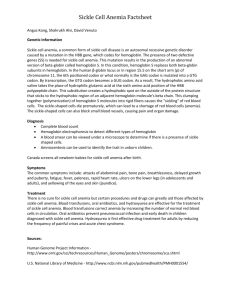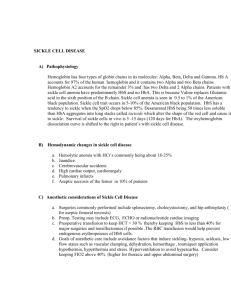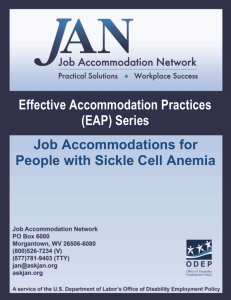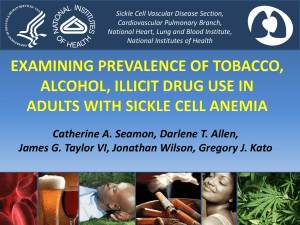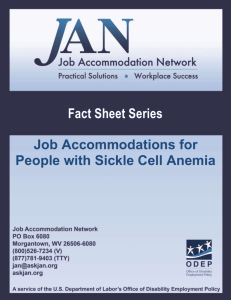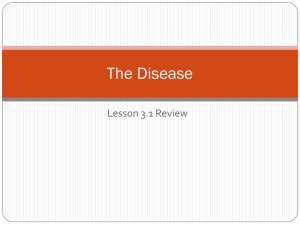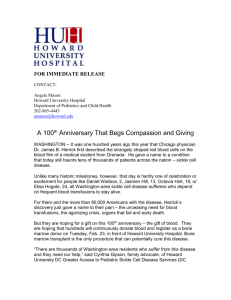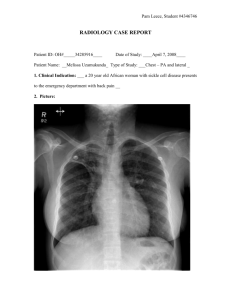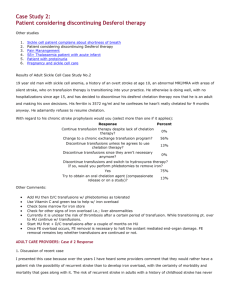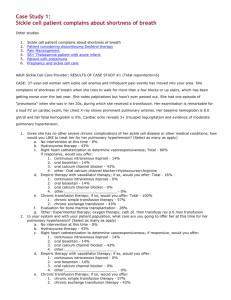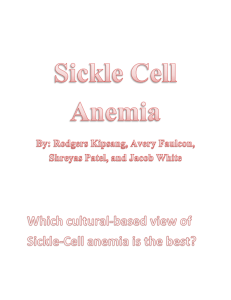New Recommendations, Highlights, Clinical Pearls
advertisement
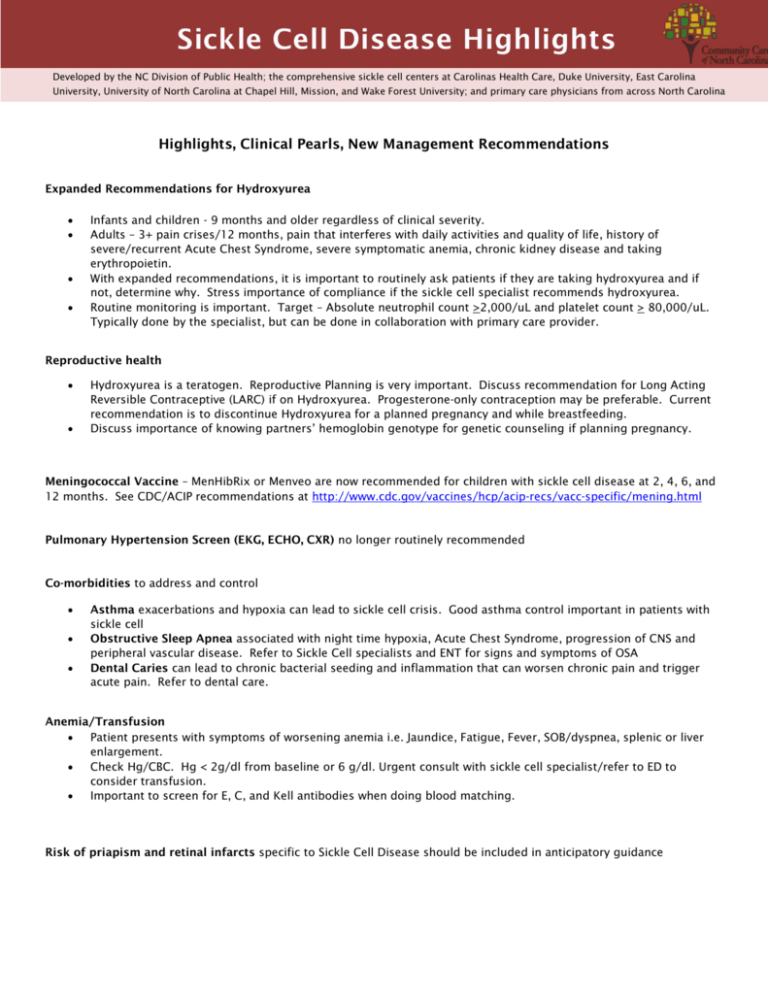
Sickle Cell Disease Highlights Developed by the NC Division of Public Health; the comprehensive sickle cell centers at Carolinas Health Care, Duke University, East Carolina University, University of North Carolina at Chapel Hill, Mission, and Wake Forest University; and primary care physicians from across North Carolina Highlights, Clinical Pearls, New Management Recommendations Expanded Recommendations for Hydroxyurea Infants and children - 9 months and older regardless of clinical severity. Adults – 3+ pain crises/12 months, pain that interferes with daily activities and quality of life, history of severe/recurrent Acute Chest Syndrome, severe symptomatic anemia, chronic kidney disease and taking erythropoietin. With expanded recommendations, it is important to routinely ask patients if they are taking hydroxyurea and if not, determine why. Stress importance of compliance if the sickle cell specialist recommends hydroxyurea. Routine monitoring is important. Target – Absolute neutrophil count >2,000/uL and platelet count > 80,000/uL. Typically done by the specialist, but can be done in collaboration with primary care provider. Reproductive health Hydroxyurea is a teratogen. Reproductive Planning is very important. Discuss recommendation for Long Acting Reversible Contraceptive (LARC) if on Hydroxyurea. Progesterone-only contraception may be preferable. Current recommendation is to discontinue Hydroxyurea for a planned pregnancy and while breastfeeding. Discuss importance of knowing partners’ hemoglobin genotype for genetic counseling if planning pregnancy. Meningococcal Vaccine – MenHibRix or Menveo are now recommended for children with sickle cell disease at 2, 4, 6, and 12 months. See CDC/ACIP recommendations at http://www.cdc.gov/vaccines/hcp/acip-recs/vacc-specific/mening.html Pulmonary Hypertension Screen (EKG, ECHO, CXR) no longer routinely recommended Co-morbidities to address and control Asthma exacerbations and hypoxia can lead to sickle cell crisis. Good asthma control important in patients with sickle cell Obstructive Sleep Apnea associated with night time hypoxia, Acute Chest Syndrome, progression of CNS and peripheral vascular disease. Refer to Sickle Cell specialists and ENT for signs and symptoms of OSA Dental Caries can lead to chronic bacterial seeding and inflammation that can worsen chronic pain and trigger acute pain. Refer to dental care. Anemia/Transfusion Patient presents with symptoms of worsening anemia i.e. Jaundice, Fatigue, Fever, SOB/dyspnea, splenic or liver enlargement. Check Hg/CBC. Hg < 2g/dl from baseline or 6 g/dl. Urgent consult with sickle cell specialist/refer to ED to consider transfusion. Important to screen for E, C, and Kell antibodies when doing blood matching. Risk of priapism and retinal infarcts specific to Sickle Cell Disease should be included in anticipatory guidance
